Promoting cultural activism to counter extremism
Experts give their opinion on extremism, culture and education in Sindh
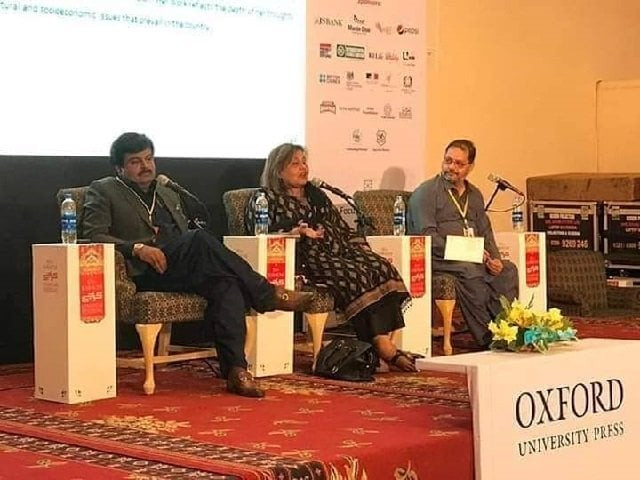
Experts give their opinion on extremism, culture and education in Sindh. PHOTO COURTESY: JIBRAN STUDIO
A session at the 10th Karachi Literature Festival moderated by senior journalist, Izhar Soomro, with the Sindh Minister for Education, Culture, Tourism and Antiquities Syed Sardar Ali Shah and well-known dramatist and novelist Noorul Huda Shah on the panel, discussed the prospects of promoting progressive cultural activism as a way of countering extremism.
"What is the history of Sindh and its people in relation to the current rise in extremism?" was Soomro's first question at the session, 'cultural activism to counter extremism in Sindh'.
According to Noorul Huda, Islam has an ancient history in Sindh dating back to long before the arrival of Muhammad Bin Qasim. She pointed out that Sindh is the land, with poets such as Shah Abdul Latif, who still have a profound impact on the people whether they are rural, urban, young or old. It is the ideology of the land which resonates with love and tolerance, and it can be witnessed in Latif's poetry, she said. "Sindh jo shah, abad aur hara bara rahkhi lekhin uskay baad puray dunya ko abad rakhi, [Sindh should be kept blessed, abode and evergreen but the whole world must be also kept that way]," she recites for the audience.
"Every child of Sindh resonates with this philosophy of love and brotherhood. The people of the land are down to earth and hospitable. Hindus during the time of partition were not expelled from their lands," she claimed.
"Even today, when you ask a Hindu or a Muslim who they are, they would say that they are Sindhi," she said.
A united front against extremism
Soomro added that archaeological excavations in Moen Jo Daro had found no weapons in the region. "So Sindh has always been a peaceful region?" he asked.
"Weapons were never discovered in the Indus Valley civilisation's region. The society that existed during those days was a democratic society and people of that age loved arts and culture," said Sardar.
"So historically the extremism that was brought from outside was never digested by the people of Sindh because this land had given birth to Sufi culture and poets such as Shah Abdul Latif and Sachal Sarmast who had always condemned extremism," he said.
Soomro's next question was for Noorul Huda. "As a writer how do you think extremism can be countered through literary work?"
Noorul Huda commented, "Every human being wants to live in peace but when rights are violated, we see a rise in extremism because the most oppressed have no choice but to channel their frustration and hopelessness through radicalisation," she said.
Sardar said that traditionally, melas [festival] and Urs [death anniversary] of Sufi saints had always attracted huge crowds of followers which in turn countered extremism. "Even today we have succeeded to do so by organising many literary festivals across Sindh".
But the minister lamented that the recent halt of funds from the federal government to the provincial government effected the budget for such programmes. "Around Rs55 billion per month that could have been utilised for cultural programmes and development work," he said.
"The rise of poverty in rural areas is pushing young minds towards religious seminaries and indoctrination, are we ignoring these ground realities," asked the moderator.
Can poetic expression counter violent extremism in Pakistan?
"When we talk about religious seminaries, we can't ignore the dire state of education in the province and the country as a whole. We have forced an entire generation of this country towards religious seminaries because they have not been offered a way out," said Noorul Huda, adding that some of these seminaries were breeding grounds for extremism.
"The state and its policies have failed us miserably," she added referring to the state of the education sector. "We see a great divide between rural and urban areas in Sindh. The urban population is focused on their jobs, careers, and so on. While they do criticise the rulers, how much do they empathise with the sad state of affairs of the land as they free themselves from it?" she asked.
Sardar added that that since 1947 to 2019 no law in the country has had a clear definition of what a school is, whether it was a law passed by the federal or the provincial government. The minister said there were 47,000 school buildings available in the province, 42,000 were built through consolidation while 39,000 were primary schools and only 3,000 schools focused on secondary education. "That's why we see students dropping out of the education system because the urban and educated have abandoned the schools in rural towns and villages," he said.
Before the session began, a moment of silence was observed to mourn the murder of Prof Jawaid Bhutto in Washington DC.
Published in The Express Tribune, March 3rd, 2019.

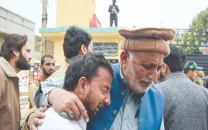
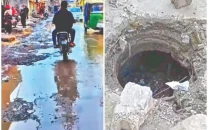
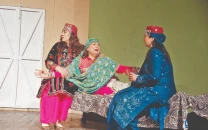

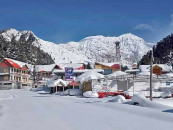
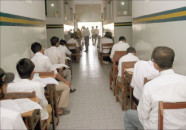












COMMENTS
Comments are moderated and generally will be posted if they are on-topic and not abusive.
For more information, please see our Comments FAQ